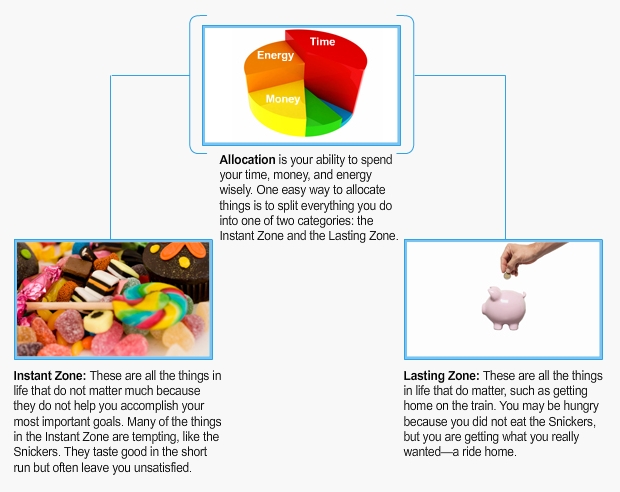Allocation
Importance of Money Allocation: Text Version
Importance of Money Allocation
Imagine you are in a railway station.
You have six dollars in your pocket, and the train home costs five dollars. But then you walk by a vending machine and you see a King-Size Snickers®. You are really hungry, so you go ahead and buy the Snickers® for two dollars. And boy does that Snickers® taste good! But then you realize something—you only have four dollars left. And the train costs five dollars.
Because you did not spend your money on what was important—getting home—and instead spent it on what seemed urgent but was not important— the Snickers®—you now have an emergency. You have to beg for money from a stranger. Or you have to walk home in the dark. Or you have to call your friend or a parent and ask for help.
This train station scenario is a great way to think about life. You have limited time, money, and energy during your life journey. If you spend these precious resources wisely, you can go where you want; if you do not, you will be stuck.

Let’s see some examples of instant and lasting zone situations.
- Instant Zone Situations
- checking Facebook for the 47th time in one night
- sending a text message at 3 a.m.
- eating your fourth bag of Flaming Hot Cheetos in a day
- Lasting Zone Situations
- working out
- studying ahead of time for a big test
- helping your mom with the dishes
 © 2012 Thinkstock
© 2012 ThinkstockLife is an endless tug of war between the Instant Zone and the Lasting Zone. Some people have no idea that they are in this tug of war—that every day, every moment, they choose which zone they are in. Successful people understand the value of the Lasting Zone and they allocate their time, energy, and money to things that matter.